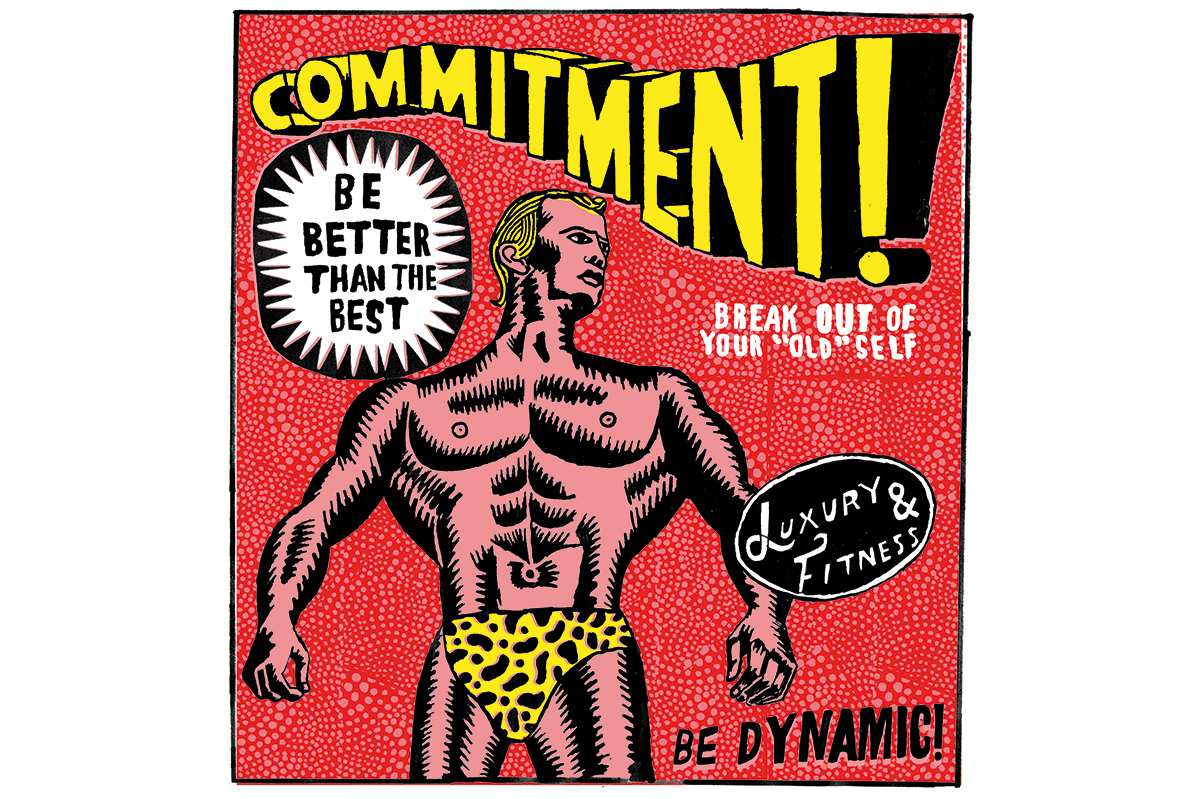I adhere to a pretty iron-clad rule: not only do I avoid the bumper cars of social media, but I don’t read the comments after my columns. Many other journalists avidly lap up reader responses to their work, and there’s certainly something to be said for confronting detractors, thus learning to anticipate counter-arguments and to guard against misinterpretation. But for me — I doubt this makes me unusual — one scornful put-down has a more lasting effect than ten gushing compliments. Forbidding myself from hitting that bottom tab is a matter of self-protection. While writing, I don’t want to lose my nerve, and too keen an awareness of your (potentially hostile) audience can be inhibiting, as if someone is reading over your shoulder.
Yet in early October, my sister-in-law implored me to please read the comments under my September 28 column, run after I’d been absent from these pages for nearly two months. With some hesitation, because I wasn’t sure my private travails were of public interest, I explained my disappearance in “Whatever happened to Lionel Shriver?”. A cascade of medical catastrophe had nearly done me in: major back surgery, terrifyingly inadequate pain management, mysterious all-body collapse, my own surgical team’s accusation that I was crazy, abandonment to a Cuckoo’s Nest care home and backhanded rescue by grim diagnosis: Guillain-Barré syndrome, affectionately known as GBS.
I took that advice, and I’m glad I read those comments. Over the years, I must have aired opinions that rubbed numerous Spectator readers the wrong way, but in not a single instance did a subscriber take advantage of my infirmity to stick the knife in. To the contrary, across nearly 400 comments, the readership was concerned, well-wishing, appreciative of this column and hopeful that I was returning to form. Honestly, I was bowled over, even abashed.
So I’m taking the occasion of our Christmas issue to thank all of you who expressed solicitude, and that includes the many sympathizers I heard from directly (even by mail-mail!) — distant colleagues and total strangers, sometimes sharing their own horror stories about back surgery gone awry or GBS (take it from us: you do not want this perverse malady, whereby your own body declares world war three on your entire neurological system). You were all so gracious and decent that I’m a bit embarrassed now that I’ve been scrupulously avoiding your comments for seven years.
I’m of two minds about journalists turning their ongoing medical tribulations into a saga for their copy. I find obnoxious any suggestion that suffering by folks in the media is worthy of attention solely because they’re in the media. Suffering is the ultimate social leveler, and it would be arrogant to presume that mine is especially compelling. On the other hand, I remember Jeremy Clarke’s poignant, modest, often dry Spectator account of dying from cancer and how he moved and ultimately devastated thousands of readers who’d come to love him. At their best, these medical blow-by-blows stand in for everyone’s medical blow-by-blows, allowing readers to grapple with what’s bound to befall us all in due course. In that spirit, then, an update.
I am better. I no longer sleep 14 hours a day; more like nine. I’ve much more energy. I can concentrate, read, write, talk and think. My hands aren’t quite as neuropathic, less agonizing than annoying. I’m inaccurate, but I can finally type again. My other fingers still feel like bread sticks, but my right pinkie almost seems to belong to a living human body, giving me hope for the more recalcitrant digits, still more like the fingers of a corpse. My back aches deeply when I arise from bed or a chair; bending over, I’m five inches from touching my toes. But I’m told the fusion of the vertebrae is a success.
Now for the bad news. This GBS crap could have been invented to humble me in particular. For weeks on end, it kept a writer from typing. And this condition is ruinous for fitness freaks. The results of many years’ worth of press-ups, sit-ups, step-ups, crunches, mountain climbers, burpees and deltoid dips simply dissolved overnight. When I came home from hospital, I needed two hands to lift a cup of coffee. OK, I can finally use one hand — though I’m prone to chronic tremulousness, so don’t fill the cup too full. My biceps having melted, I now do girly press-ups from the knees, which is humiliating. On top of being dreary, my new exercises are pathetic. How the mighty are brought low.
Worse! Looking at my X-rays this summer, my spinal surgeon mentioned casually: “Oh, your right hip is very tight. Arthritis — bone on bone.” I hadn’t really noticed that joint was arthritic, probably because it was then well supported by muscle. Now? There is no muscle. Rather, my husband announced soon after my return home that I had to sit on a pillow at dinner because my “bony ass” was denting the chair cushion. I submitted to back surgery in the first place because the pain from spinal nerve impingement had given me a permanent limp on the right side and I could not walk. Emerging from this horror show, I have a permanent limp on the right side and I cannot walk. This is a medical Groundhog Day, in which I repeatedly wake on a gurney being prepped for carve-up.
I need an immediate hip replacement. I was diagnosed as needing two total knee replacements back in 2011. You can bet the left hip will soon want in on the action too. Note that all my ailments are skeletal. My fellow fitness freaks won’t want to hear this, but I wrote a whole novel about the truism that exercise doesn’t only build you up but wears you out.
So! In the olden days, I wrote columns about immigration, demography, identity politics and sovereign debt. That’s over. From now on, they’re all going to be about oxycontin vs. oxycodone and what happens when you combine opioids with alcohol — lots of alcohol. Enjoy.


























Leave a Reply